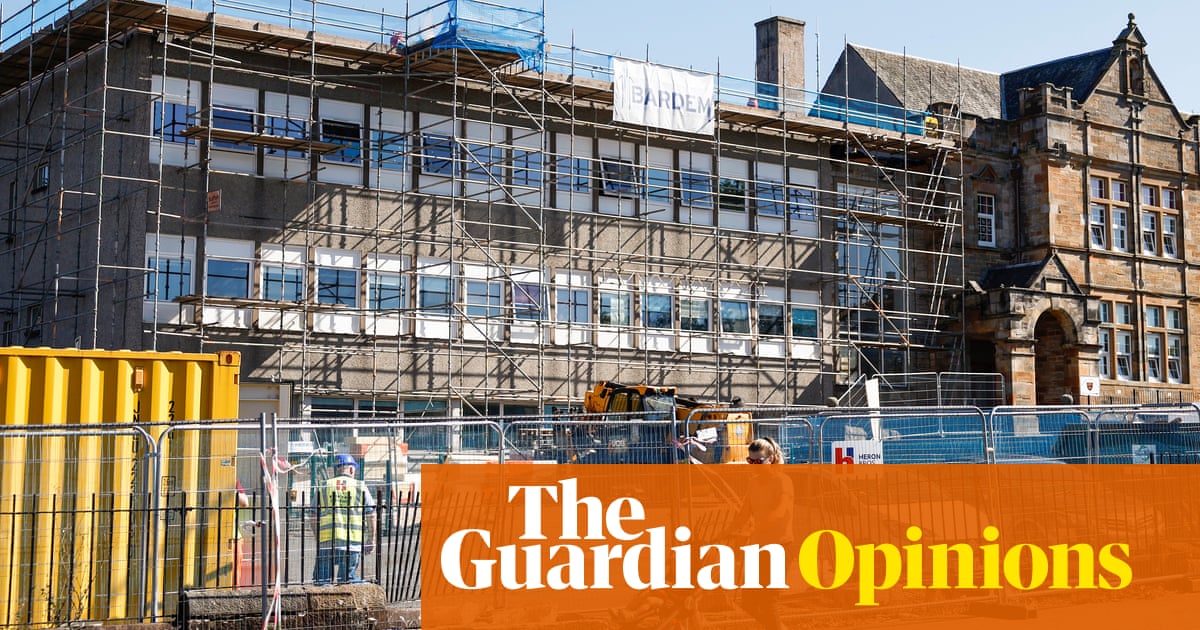
roydon is bankrupt. The south London council last week issued a section 114 notice – a formal declaration that it cannot meet the legal requirement to balance its books and will halt all but essential spending. The government’s response is simple: blame the council. Croydon took bad financial decisions, made risky investments and is now suffering the consequences. It’s the same line as that taken when Northamptonshire council went bust in 2018, and has been trotted out regularly about local government as a whole in recent months.
It’s a convenient fiction that deliberately ignores the context of an almost 50% cut in government funding to councils since 2010. Those “bad financial decisions” reflect the inability of some councils to reduce their spending on public services enough to accommodate that cut. The “risky investments” are efforts by councils to generate extra income so that the spending reductions are not quite so severe.
The fault here lies not with councils but with a decision taken back in 2010 by the coalition government to heavily load the burden of austerity on to local government and welfare so that education, pensions and the NHS could be relatively protected from cuts. It was a ruthless but politically successful calculation to cushion the areas of the public sector that David Cameron and co knew voters and the media cared most about. It was also a wildly reckless move that was bound to make crucial services unsustainable over the longer term.
Covid has turned that longer term into the much shorter term. The pandemic and two lockdowns have both ramped up the demand for local government services and massively reduced councils’ incomes. Inevitably this has intensified already dire financial pressures. A situation not helped by the government reneging on a promise made to councils in March to fully reimburse them for the impact of Covid.
As a result, Croydon is far from alone. Councils across the country are having to introduce severe cuts and a number are on the brink of declaring bankruptcy. Ironically, some of the biggest stresses are being reported by Conservative-run county councils. But Labour-run cities are far from exempt, with Manchester, Leeds and Liverpool all planning deep cuts and redundancy programmes. And the impact has been deeply felt across the whole UK as the devolved governments have passed on to councils some of the cuts they have received to their funding from Westminster.
It is hard to fathom the levels of irresponsibility of successive governments to allow a central plank of the public sector to get into such a parlous state. A decade’s worth of austerity for councils has left the country stripped of youth services, community centres, libraries, arts venues, sports facilities – the things that make up the social fabric of our nation. But the economic fabric has also been frayed, with the local teams dedicated to regeneration and housing left shadows of their former selves after repeated rounds of redundancies and budget cuts.
And at the darkest end of the moral failure spectrum is the care we provide to the disabled and the elderly, and to abused and neglected children, incrementally shaved away both in quantity and quality just as demand for that care has risen rapidly. Cuts have forced the rationing of social care in a way that would have been a national scandal had it happened to the healthcare provided by the NHS.
What adds a decidedly surreal air to this unending austerity is that it is reaching its greatest intensity just as councils have proved how fundamental they are to the nation’s health and wellbeing. While the government has lurched from failed initiative to PR disaster and back again in its fight against Covid, councils have worked energetically with their communities to get on with launching test and trace systems that actually work, ensuring those in need receive food and support, and sending out clear messages about restrictions.
A more open-minded government might have recognised this as a good time to direct funding and powers towards the part of the system that is proving effective. Instead, it is doubling down on starving local government of funds, picking pointless fights with its leaders and seizing local powers for itself.
It’s a situation that throws into stark relief a new divide in British politics. On one side, a bloated centralised state that thinks the solutions to the nation’s problems can be found in policies dreamed up in stuffy rooms in Whitehall and delivered through multimillion-pound contracts with large corporations. On the other, a local state that, despite its financial problems, is in many cases looking to collaborate ever more closely with their residents to solve knotty challenges by embracing more participatory forms of democracy and caring, community-led models of service delivery. It’s a battle between a tired, unthinking market fundamentalism and a community-powered vision of social justice and decent public services.
Croydon is unlikely to be the last council to reach this point of crisis. But it should stand as the first inspiring us to demand and build something far better.
• Adam Lent is chief executive of New Local, an independent thinktank












